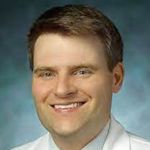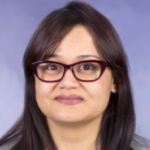
Dear TID Member,
On behalf of Transplant Infectious Disease (TID) we would like to encourage you to participate in our 2023 Election. To be eligible to vote you must be a Full or Emeritus member of TID.
TID seeks to achieve a Council that has gender and geographical balance in proportion to our membership. Elected candidates will start their term on October 4, 2023.
It’s as easy as four simple steps:
- Log in into your account
- Prior to accessing the ballot you may view bios and photos on this page.
- Click the button below and you will be taken to the election ballot.
Deadline to vote:
June 30 at 23:59 EDT (Montreal time)
Nominees
President-Elect (Running Unopposed)

Wanessa Trindade Clemente - Brazil
Dr. Clemente is a Professor at the School of Medicine of the Federal University of Minas Gerais (UFMG), Brazil. She holds a PhD in Infectious Diseases and Tropical Medicine from the same institution. She has been working in the field of Transplantation for over 20 years and has professional expertise in the areas of transplant infection, quality and safety in transplantation, travel and tropical medicine, and healthcare-associated infections, with a special interest in Antimicrobial Stewardship Programs (ASP). Dr. Clemente has attended visitor TID programs in the UK, the US, and Spain. She is an associate editor of Transplantation and has led a number of international research projects, besides serving as a member of many national and international study groups on the subject of TID. She is passionate about education in medicine and the continued professional development of specialists in TID.
Secretary/Treasurer (Running unopposed)

Cameron Wolfe - United States
Cameron Wolfe, MBBS, MPH is a Transplant Infectious Disease physician based in the United States, at Duke University. Cameron was trained in Australia before moving to Duke in 2007, where he holds the rank of Professor of Medicine. Clinically, Cameron has interests in solid organ and bone marrow transplant and researches clinical and pharmacologic management of respiratory viruses, hepatitis and HIV in transplantation. His particular interest is in finding ways to expand donor options by using donors living with active infectious diseases, such as HIV, COVID or viral hepatitis. He was a previous chair of the UNOS Disease Transmission Advisory Committee, in the United States, and a previous Director on the Board for UNOS/OPTN. Cameron led the Covid management at Duke University and continues to oversee vaccination programs for staff and patients at the University. He teaches undergraduate and medical classes at both Duke University and The University of North Carolina, Chapel Hill. In his spare time, Cameron has become one of the scout masters for his 8, 10yr old boy's cubscout troop.
Councilor - All Regions (Choose 2)

Jonathan Hand - United States
Dr. Hand obtained a Medical Doctor Degree from the Louisiana State University Health Sciences Center (LSUHSC) New Orleans where he was inducted into the Alpha Omega Alpha National Honor Medical Society. He completed his Internal Medicine Residency and Infectious Diseases Fellowship at The Icahn School of Medicine at Mount Sinai in New York. After completing his training, he joined Ochsner Health in New Orleans, as an Attending Physician in the Department of Infectious Diseases and Assistant Professor of Medicine at the University of Queensland School of Medicine Ochsner Clinical School. He currently serves as the Section Head of Transplant Infectious Diseases, Associate Research Medical Director for Infectious Diseases, and the Medical Director of the Antimicrobial Stewardship Program. He is also the Associate Medical Director for the Louisiana Organ Procurement Agency and co-chairs their Advisory Board. Dr. Hand is a fellow of the Infectious Diseases Society of America and the American Society of Transplantation and has held leadership positions in the International Society for Heart and Lung Transplantation and American Society of Transplantation. His clinical and research interests include organ donation, prevention and treatment of infectious complications in transplant recipients and antimicrobial stewardship.

Hannah Imlay - United States
Hannah Imlay, MD, MS, completed her infectious diseases fellowship and a Master’s degree in Epidemiology at the University of Washington. She is currently an assistant professor at the University of Utah. Her academic interests focus on two major areas: antimicrobial stewardship and viral infections among immunocompromised hosts. Dr. Imlay established and acts as the medical director for an immunocompromise-focused antimicrobial stewardship program (ASP) and as the associate medical director for ASP at University of Utah Health and the Salt Lake City VA Health System. Her work in viral infections focuses on BK virus and CMV among organ transplant and hematopoietic stem cell transplant recipients—in particular, how best to assess and mitigate risk of poor virus-mediated outcomes. Clinically, Dr. Imlay works primarily with transplant recipients and immunocompromised patients. Outside of the University, she is one of the immunocompromise-focused associate editors at Open Forum Infectious Diseases (OFID) and acts as the chair of the Society for Healthcare Epidemiology of America (SHEA) journal club. Dr. Imlay is interested in a position on the TID council to expand her involvement in ID-focused education, guideline development, and establishing relationships with other immunocompromised infectious diseases-focused experts internationally.

Andrew Karaba - United States
Andrew Karaba is an Assistant Professor of Medicine in the Division of Infectious Diseases at Johns Hopkins University School of Medicine in Baltimore, MD. He received his B.A., M.D., and Ph.D. from Northwestern University. He earned his Ph.D. focusing on how herpes simplex virus entry receptors contribute to pathogenesis. He completed residency in Internal Medicine and fellowship in Infectious Diseases at Johns Hopkins where he joined the faculty in 2021. His research focuses on understanding immunity to viruses that commonly impact immunocompromised individuals including HSV, CMV, and SARS-CoV-2. He is an associate director of basic/translational research in the transplant research center at Johns Hopkins. He sees patients as part of the transplant and oncology infectious diseases consultation service and is a member of the Johns Hopkins COVID-19 therapeutics guidance committee. He served on the TID-ASID planning committee in 2022 and is excited for an opportunity to serve this great organization.

Anoma Nellore - United States
Anoma Nellore is Associate Professor of Infectious Diseases and Director of Transplant Infectious Diseases at the University of Alabama at Birmingham. Her research areas of expertise relate to humoral immune responses to opportunistic pathogens and vaccine antigens in the immunocompromised host with a goal to develop precision vaccine strategies for the immunocompromised. She serves as site PI or mechanistic PI for ongoing clinical trials in this area. She is also passionate about advancing transplant ID education both among ID fellows and with partner training programs and currently co-directs UAB's Transplant ID fellowship. Finally, she founded a regional conference, the Southeast Transplant ID Conference, that convenes 50-60 Southeast transplant ID physicians and fellows quarterly to discuss relevant topics of interest in the field.

Matthew Roberts - Australia
Dr Matthew Roberts, MBBS, MPH&TM, FRACP is an infectious diseases physician at the Royal Adelaide Hospital in Adelaide, Australia. He undertook medical and infectious diseases training in Adelaide followed by a Transplant and Immunocompromised Host Infectious Diseases Fellowship at the Massachusetts General Hospital, Boston 2019-2021. Since returning to Adelaide in 2021, his clinical practice has focused on immunocompromised hosts, particularly kidney, pancreas, lung, heart and stem cell transplant recipients as well as those with haematologic malignancies. He sits on the Immunocompromised Host Special Interest Group (ICHSIG) committee of the Australasian Society for Infectious Diseases (ASID) and recently assisted in organising the successful TID-ICHSIG joint symposium in Adelaide, April 2023. Matt hopes to contribute to TID through research and educational collaborations. He hopes to continue to build the profile of transplant infectious diseases as a sub-speciality with the ultimate aim of contributing to improved outcomes for transplant recipients. He has research interests in infection epidemiology, vaccination and infection prevention/prophylaxis strategies in immunocompromised hosts.

Sarah Taimur - United States
Dr. Sarah Taimur is a long-standing member of the transplant infectious diseases (TID) community. She has served on the executive council of the AST IDCOP and currently serves on the UNOS Disease Transmission Advisory Committee. As an active member of the IDCOP MDRO work group, she leads a large multi-center research project on mechanical support device infections. Her work in the field includes the first description of infections due to multidrug-resistant organisms following heart transplantation and the impact of pre-transplant colonization due to carbapenem-resistant Enterobacterales in solid-organ transplantation. She is the founding co-chair of the North-East Transplant ID Society, which emerged as a regional forum in the northeast transplant infectious diseases community and since 2020, has been conducting educational sessions pertaining to infectious diseases in both the solid-organ and stem-cell transplant host and emerging diagnostics in the field. Dr. Taimur is a teacher and in her own institution, serves as program director for the TID fellowship track and has mentored several young doctors who have gone on to join and lead transplant ID programs around the country. She also serves as a mentor in the IDCOP for trainees and junior members.
Contact
Address
The Transplantation Society
International Headquarters
740 Notre-Dame Ouest
Suite 1245
Montréal, QC, H3C 3X6
Canada
Используйте Вавада казино для игры с бонусом — активируйте промокод и начните выигрывать уже сегодня!
